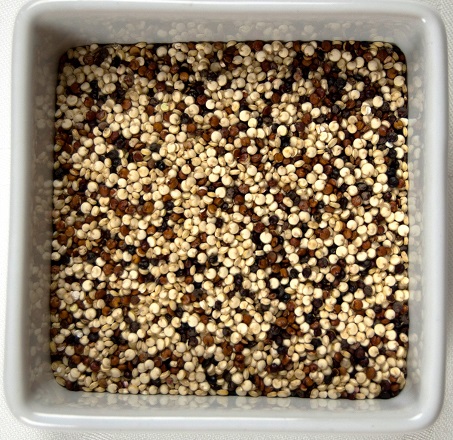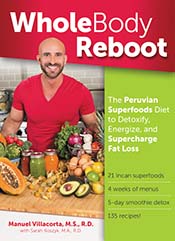
Although often referred to a grain, quinoa is technically a seed. Quinoa is quite common in markets and stores and can be found in red, white, and black varieties. It has a nutty taste, and pleasant moist texture, but also has an exceptional nutritional content. This seed, or grain-like product, is considered a complete protein because it is made up of a total of 21 amino acids, 9 of which are essential. Quinoa is the only seed that meets that criterion. It is delicious. versatile, and used throughout different cultures.
Quinoa has long been a staple of Peruvian cuisine. This grain or seed was discovered by the ancient Incas and was named “the mother grain” because they believed it was a gift from their gods. The cultivation of quinoa dates back to 5,000 years and has been used in a variety of dishes. It can be tossed in salads such as quinoa-pichuberry salad, mixed with roasted vegetables, served for breakfast as a gluten-free quinoa crepe, fried rice, or even pizza crusts. With its unique and pleasant taste, comes many health benefits.
Quinoa is rich in B vitamins, calcium, fiber, copper, iron, magnesium, vitamins C and E, and zinc. It is also gluten and lactose free. Regularly consuming certain amino acids, antioxidants, B vitamins, and omega-3s-linoleic acid and linolenic acid found in quinoa have been associated with increased brain function. The essential amino acids linoleic and linolenic acid have also been shown to improve cardiovascular health as well as blood sugar control. This seed has a very low glycemic index of 35, so quinoa makes a great carbohydrate source for diabetics because of the slow rate that it affects blood sugar once eaten. Strong protein and fiber intake is a dietary essential for regulating blood sugar as well.
Additionally, both vitamins C and E are antioxidants that help prevent free-radical damage, which can cause oxidative damage that has been linked to cancer and heart disease. Quinoa contains phytosterols that have been linked to preventing oxidative damage, cancer growth, and lowering cholesterol. These phytosterols have anti-inflammatory effects, making quinoa a potentially great food for people experiencing diseases such as arthritis, metabolic syndrome, or other gastrointestinal inflammatory diseases.

For more recipes using Peruvian superfoods, visit here.





